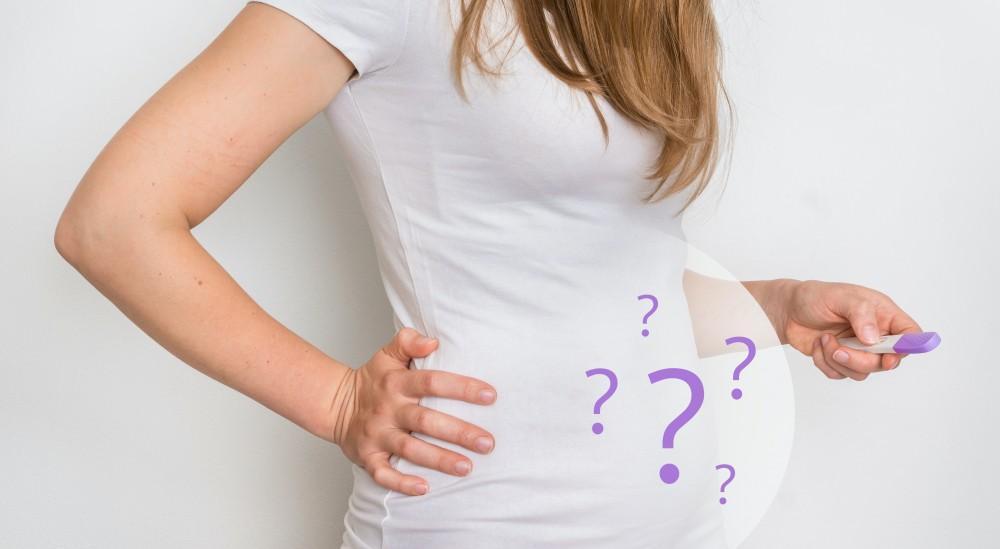
What Are the Most Common Causes of Female Infertility?
Getting pregnant and carrying a pregnancy to term are actually very complicated processes. Many things can go wrong during these processes to lead to infertility. For this reason, the following list includes only some of the common causes of infertility in females; it is not meant to be all-inclusive. A woman who is having difficulty getting pregnant or carrying a pregnancy to term should talk with her health care provider about possible treatments.
Failure to Ovulate
The most common overall cause of female infertility is the failure to ovulate, which occurs in 40% of women with infertility issues.Not ovulating can result from several causes, such as:
- Ovarian or gynecological conditions, such as primary ovarian insufficiency (POI) or polycystic ovary syndrome (PCOS)
- Aging, including "diminished ovarian reserve," which refers to a low number of eggs in a woman's ovaries due to normal aging
- Endocrine disorders, such as thyroid disease or problems with the hypothalamus, which affect the hormones produced by the body so that there might be too much or too little of a hormone or group of hormones
- Lifestyle and environmental factors
Problems in the Menstrual Cycle
Problems with the menstrual cycle, the process that prepares the female body for pregnancy, can lead to infertility. The menstrual cycle includes several phases, and problems at any one of the stages can lead to difficulty getting pregnant or to infertility.
Structural Problems of the Reproductive System
Structural problems usually involve the presence of abnormal tissue in the fallopian tubes or uterus.
If the fallopian tubes are blocked, eggs are not able to move from the ovaries to the uterus and sperm is not able to reach the egg for fertilization. Structural problems with the uterus, such as those that may interfere with implantation, can also cause infertility.
Some specific structural problems that can cause infertility include:
- Endometriosis, when tissue that normally lines the inside of the uterus is found in other places, such as blocking the fallopian tubes
- Uterine fibroids, growths that appear within and around the wall of the uterus, although most women with fibroids do not have problems with fertility and can get pregnant. However, some women with fibroids may not be able to get pregnant naturally or may have multiple miscarriages or preterm labor.
- Polyps, which are noncancerous growths on the inside surface of the uterus. Polyps can interfere with the function of the uterus and make it difficult for a woman to remain pregnant after conception. Surgical removal of the polyps can increase the chances for a woman to get pregnant.
- Scarring in the uterus from previous injuries, infections, or surgery. Scarring may increase the risk of miscarriage and may interfere with implantation, thus leading to infertility.
- An unusually shaped uterus, which can affect implantation and the ability to carry a pregnancy.
Infections
Infections can also cause infertility in men and women.
Untreated gonorrhea and chlamydia in women can lead to pelvic inflammatory disease, which might cause scarring that blocks the fallopian tubes. Untreated syphilis increases the risk for a pregnant woman to have a stillbirth. More information about infections that may affect fertility can be found on the sexually transmitted infections (STIs) health topic page.
Chronic infections in the cervix and surgical treatment of cervical lesions associated with human papillomavirus (HPV) infection can also reduce the amount or quality of cervical mucus. Problems with this sticky or slippery substance that collects on the cervix and in the vagina can make it difficult for women to get pregnant.
The Centers for Disease Control and Prevention recommends that all boys and girls age 11 or 12 be vaccinated against HPV. Men and women who weren't vaccinated as preteens can also get the vaccine into their early to mid-20s.
Failure of an Egg to Mature Properly
Eggs may not mature properly for a variety of reasons, ranging from conditions such as PCOS, to obesity, to a lack of specific proteins needed for the egg to mature.
An immature egg may not be released at the correct time, may not make it down the fallopian tubes, or may not be able to be fertilized.
Implantation Failure
Implantation failure refers to the failure of a fertilized egg to implant in the uterine wall to begin pregnancy. While the specific cause of implantation failure are often unknown, possibilities include:
- Genetic defects in the embryo
- Thin endometrium
- Embryonic defects
- Endometriosis
- Progesterone resistance
- Scar tissue in the endometrial cavity
Endometriosis
Endometriosis occurs when the cells that normally line the uterine cavity, called the endometrium, are found outside the uterus instead.
Research has found a link between infertility and endometriosis. Studies show that between 25% and 50% of infertile woman have endometriosis and between 30% and 40% of women with endometriosis are infertile.Scientists do not know the exact cause of infertility in women with endometriosis.
Current theories on how endometriosis causes infertility include the follow:
- Changes in the structure of the female reproductive organs may occur. Endometriosis can cause pelvic adhesions made of scar tissue to form between nearby structures, such as between the ovary and pelvic wall. This can obstruct and affect the release of the egg after ovulation. Scarring in the fallopian tube can interrupt block the egg's movement through the fallopian tube.
- The lining of the abdomen, which is called the peritoneum, may go through changes that affect its function:
- In women with endometriosis, the amount of fluid inside the peritoneum often increases.
- The fluid in the peritoneum contains substances that can negatively affect the functions of the egg, sperm, and fallopian tubes.
- Chemical changes in the lining of the uterus that occur as a result of endometriosis may affect an embryo's ability to implant properly and make it difficult for a woman to stay pregnant after conception.
Polycystic Ovary Syndrome (PCOS)
PCOS is one of the most common causes of female infertility.It is a condition in which a woman's ovaries and, in some cases, adrenal glands produce more androgens (a type of hormone) than normal. High levels of these hormones interfere with the development of ovarian follicles and release of eggs during ovulation. As a result, fluid-filled sacs, or cysts, can develop within the ovaries.
Researchers estimate that 5% to 10% of women in the United States have PCOS.The exact cause of PCOS is unknown, but current research suggests that a combination of genetic and environmental factors leads to the disease.
Primary Ovary Insufficiency (POI)
POI is a condition in which a woman's ovaries stop producing hormones and eggs at a young age. Women with POI ovulate irregularly, if at all, and may have abnormal levels of ovarian and pituitary hormones due to problems with their ovaries.
Women with POI often have trouble getting pregnant. However, pregnancy is still possible, though rare. About 5% to 10% of women with POI get pregnant without medical treatment.
Uterine Fibroids
Uterine fibroids are noncancerous growths that form inside the uterus. Uterine fibroids can cause symptoms in some cases, depending on their size and location. Scientists do not know what causes fibroids to form, but it is believed that there may be a genetic basis.
Fibroids can contribute to infertility and are found in 5% to 10% of infertile women. Fibroids located in the uterine cavity (as opposed to those that grow within the uterine wall) or those that are larger than 6 centimeters in diameter are more likely to have a negative effect on fertility. Fibroids are more likely to affect a woman's fertility if they
- Change the position of the cervix, which can reduce the number of sperm that enter the uterus
- Change the shape of the uterus, which can interfere with the movement of sperm or implantation
- Block the fallopian tubes, which prevents sperm from reaching the egg and keeps a fertilized egg from moving to the uterus
- Interfere with blood flow to the uterus, which can prevent the embryo from implanting
Thyroid disease and high prolactin levels
If a woman has either low or high thyroid levels or has high prolactin (a milk-producing hormone released by the brain), this can lead to irregular ovulation.
If you are facing any of these issues, Contact Chawla Nursing Home to schedule an appointment for consultation to learn more about these issues.

